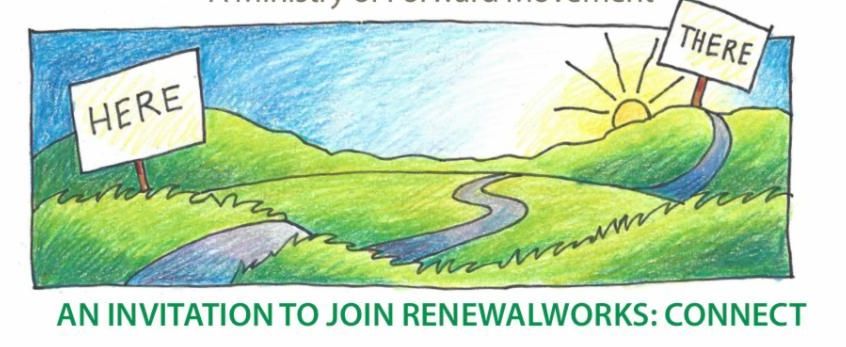
Change is good. You go first.
-Dilbert
After one sermon in which I spoke of the changes and chances of life, a parishioner complimented me on that turn of phrase. I confessed that like most of my material, it’s borrowed (stolen), in this case from the Book of Common Prayer. Here’s the point: Changes and chances of life are an old, old story. And change is always marked by resistance.
Resistance to change is part of human nature. Let me go out on a limb here: That may be especially true for Episcopalians. Early on, a mentor told me that bringing change to congregations is not that tough. What is tough is managing resistance to that change. That natural resistance in congregations (and all kinds of other human organizations) reflects the challenge we face in each of our lives.
That’s why, in the Presiding Bishop’s Way of Love (seven verbs to embrace on the journey of discipleship), the first of those verbs is turn (a.k.a., change). You can’t get where you want to go if headed in the wrong direction. This particular articulation of the Way of Love is rather new in our church, but its wisdom is as old as the Bible.
Today, June 29, we observe the feast of St. Peter and St. Paul. We honor both of them as witnesses (in Greek, the word for witness is martyr). They surrendered their lives for the sake of their faith, their discipleship. I would also like to remember them this morning as change agents, a role that got them in a heap of trouble.
Martyrdom represented a huge change for Peter who denied Christ three times, thereby complicit in Jesus’ execution. I’m struck that what Peter did was little different than what Judas did. Peter went on to be the rock on which the church was built. Martyrdom was also huge change for St. Paul, who got famous by persecuting the early church, until he was turned around on the road to Damascus. Both Peter and Paul did some significant turning in their own lives. It began there. Then as leaders, they worked with communities of faith to get them to change.
The change for the church was huge. Peter and Paul, each in his own way, blew out the walls of the church. For a community marked by clear boundaries, the call to include Gentiles, outsiders, without condition was a radical change. Peter and Paul met with resistance in their ministry of inclusion, big time. It was on ongoing struggle. Some of the most aggressive opposition came from good church folk. Can you imagine such a thing?
But thanks be to God, Peter was able to tell his community, as they wrestled with who would be allowed in, that God shows no partiality (see Acts 10:34ff). Paul, for his part, was able to say that in Christ there is neither Jew nor Greek, slave nor free, male or female (see Galatians 3:28), a radical vision of expansive beloved community that we’ve never really been able to live into. It’s a vision that continues to inspire.
One more thing: The National Cathedral in DC is really named the Cathedral of St. Peter and St. Paul. On the front of the cathedral at each end are friezes of these two characters, as far apart from each other as architecture would allow. I think that’s funny, because as I read stories of the early church, as I read between the lines, I’m not sure Peter and Paul liked each other all that much. It’s clear they had run-ins. They ended up with different ministries. Parallel play. But we remember them together as a a sign that the church is a big tent, that in the household of faith there may be people we don’t like, or with whom we disagree, or who push our buttons. That’s okay. Because in and through and maybe in spite of differences, God’s way of love unfolds with greater and greater expansiveness.
So consider lessons Peter and Paul have to teach us today. How do we as individuals need to change? Pandemic makes us think about change, especially in the ways we are church. We are not our buildings. Economic anxiety makes us think about changing our own response to those in greatest need, those eking out existence. Movements for racial injustice make us all look at ways we participate in systems that hurt people, leading us to course-correct as individuals and as a church.
Peter and Paul went through turbulent times. We do too. May God by grace guide us all amid these extraordinary changes and chances of life.
-Jay Sidebotham
Contact: Rev. Jay Sidebotham jsidebotham@renewalworks.org
RenewalWorks is a ministry of Forward Movement www.renewalworks.org


